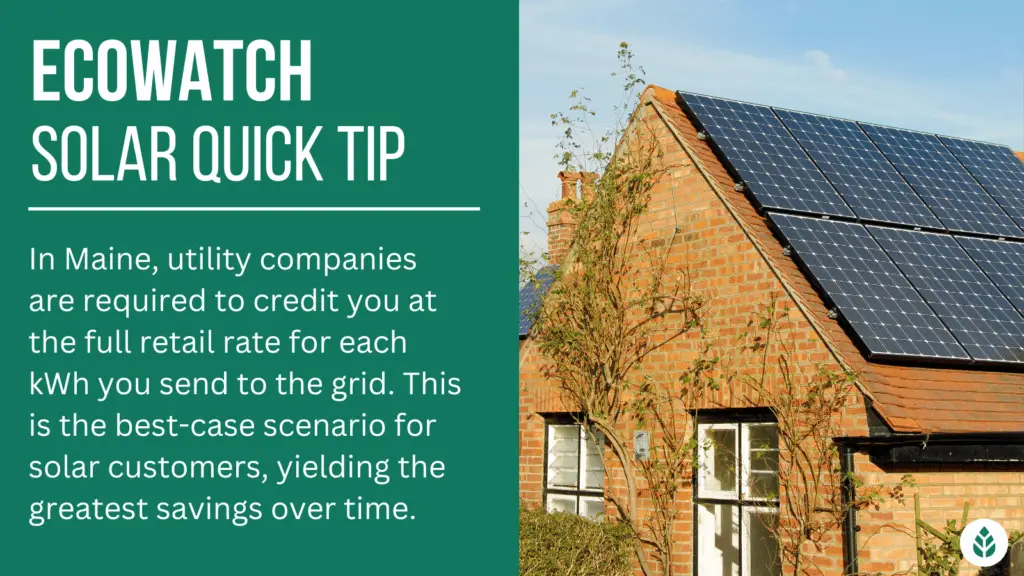Living off-grid in Maine can be an appealing option for those seeking a self-sufficient and eco-friendly lifestyle. With the state’s low population density and its incentives and rebates for renewable energy, it’s no wonder that more people are considering this alternative way of living. However, one must be prepared to face the challenges that come with it, particularly the cold and long winters. Despite this, Maine’s untouched nature, diverse wildlife, and abundance of fresh water make it an ideal location for off-grid living. Just keep in mind that compliance with building and zoning regulations is necessary to ensure a successful off-grid experience in this picturesque state.
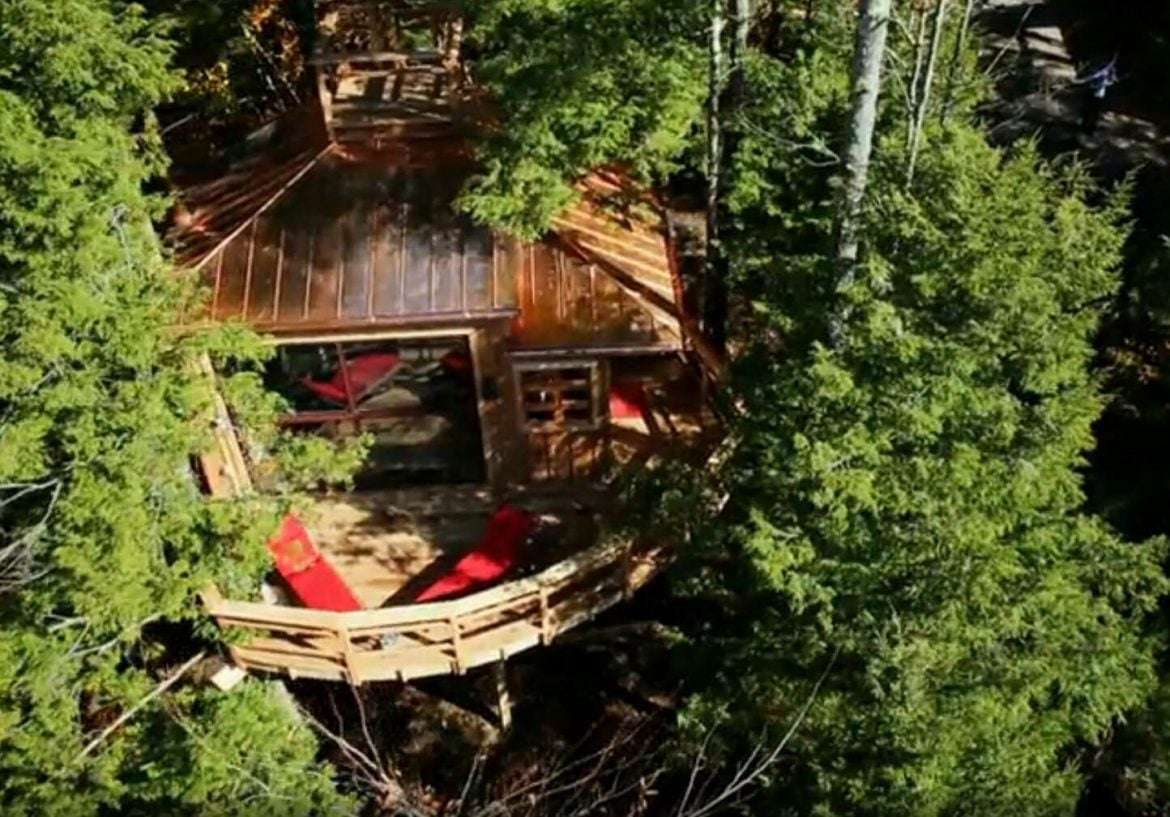
Incentives and Rebates for Renewable Energy in Maine
Maine, located in the northeastern part of the country with a low population density, offers incentives and rebates for renewable energy, specifically for solar and wind-powered energy. These incentives aim to encourage residents to adopt clean and sustainable energy sources.
Solar Energy Incentives
If you are interested in solar energy, Maine has several incentives that can make it more affordable for you. One such incentive is the Residential Photovoltaic (PV) System Rebate Program, which provides rebates to homeowners who install solar panels on their properties. Additionally, the state offers tax credits for solar energy systems, allowing you to reduce your overall tax liability. By taking advantage of these incentives, you can lower the upfront costs of installing solar panels and make your transition to renewable energy more cost-effective.
Wind Energy Incentives
Maine has also established incentives to promote wind energy. The state offers the Maine Wind Energy Investment Tax Credit, which provides a tax credit for qualified wind energy projects. By investing in wind energy, you not only contribute to the reduction of greenhouse gas emissions but also have the opportunity to benefit from these financial incentives. These incentives make wind energy a viable and attractive option for individuals and businesses looking to reduce their reliance on fossil fuels.
Other Renewable Energy Incentives
In addition to solar and wind energy incentives, Maine provides various programs and initiatives to support other forms of renewable energy. These include incentives for biomass energy, geothermal energy, and hydroelectric energy systems. By promoting a diverse range of renewable energy sources, the state aims to create a sustainable and resilient energy future for its residents.
Challenges of Living Off-Grid in Maine
While Maine encourages the adoption of renewable energy, living off-grid in the state presents its own unique challenges.
Cold and Long Winters
One of the main challenges of living off-grid in Maine is dealing with the cold and long winters. The state experiences harsh winter weather conditions, including heavy snowfall and freezing temperatures. This can pose challenges in terms of heating, maintaining a reliable power supply, and ensuring access to essential resources such as food and water. Proper insulation, alternative heating methods, and sufficient winter preparation are crucial for off-grid residents in Maine to navigate these challenges successfully.
Limited Crop Options
Maine’s unique geographical position and climate also present challenges in terms of agriculture and food production. The state has restrictions on what crops can be grown, primarily due to its shorter growing season and colder climate. Choosing suitable crops and implementing innovative farming techniques, such as greenhouse cultivation, can help off-grid residents overcome these limitations and ensure a sustainable food supply.
Road Accessibility
Road access can be affected by winter weather conditions in Maine. Black ice and heavy snowfall can make roads slippery and unsafe for travel. Off-grid residents must plan and prepare for these challenges by having appropriate vehicles, snow removal equipment, and emergency supplies on hand. It is crucial to have alternative transportation options and the ability to maintain clear paths for travel, especially in remote areas where road maintenance may be limited.
Compliance with Building and Zoning Regulations
Living off-grid in Maine requires compliance with building and zoning regulations. Even though off-grid living is legal in the state, there are still guidelines and restrictions in place to ensure public health and safety. It is essential for off-grid residents to navigate these regulations to build and maintain their homes legally. This may involve obtaining permits, adhering to specific building codes, and implementing sustainable and environmentally friendly practices.
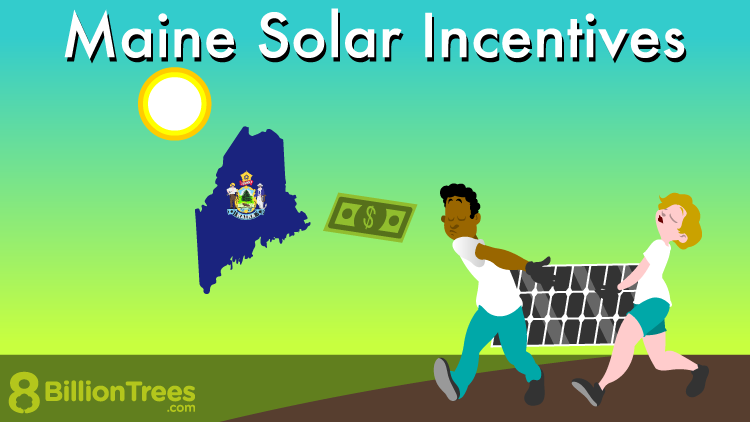
Cities in Maine
Maine is home to several cities, each with its unique charm and offerings.
Portland
Portland is the largest city in Maine and a significant economic and cultural center. It offers a vibrant downtown area with a bustling waterfront, a thriving arts scene, and a wide range of dining and entertainment options. Portland is known for its historic architecture, picturesque lighthouses, and beautiful parks and gardens. Whether you’re exploring the Old Port District or enjoying the city’s culinary delights, Portland has something to offer for everyone.
Lewiston
Located in central Maine, Lewiston is the second-largest city in the state. It is known for its rich history, French-Canadian heritage, and vibrant cultural scene. Lewiston offers a range of recreational activities, including beautiful parks, hiking trails, and access to nearby lakes and rivers. The city also hosts various festivals and events throughout the year, showcasing its diverse community and artistic talents.
Bangor
Bangor, situated along the Penobscot River, is a lively city known for its friendly community, historic architecture, and outdoor recreation opportunities. The city boasts a vibrant arts and music scene, featuring theaters, galleries, and live performances. Bangor is also a gateway to some of Maine’s most breathtaking natural landscapes, including Acadia National Park. Whether you’re exploring the city’s downtown area or enjoying the nearby wilderness, Bangor offers a balance of urban amenities and natural beauty.
South Portland
South Portland is a coastal city known for its scenic waterfront, thriving business district, and diverse neighborhoods. The city provides easy access to beautiful beaches, parks, and recreational facilities. South Portland is also home to several shopping centers, restaurants, and entertainment venues, making it a desirable place to live for those seeking a suburban lifestyle with urban conveniences.
Auburn
Auburn, neighboring Lewiston, offers a mix of natural beauty and small-town charm. The city is surrounded by lakes, rivers, and rolling hills, providing ample opportunities for outdoor activities such as hiking, fishing, and boating. Auburn also hosts community events and festivals, bringing residents together and fostering a strong sense of community.
Biddeford
Biddeford, located on the southern coast of Maine, offers a unique blend of history, culture, and natural beauty. The city features historic architecture, including mill buildings that have been repurposed into shops, restaurants, and art galleries. Biddeford is home to sandy beaches, scenic parks, and a picturesque downtown area. With its coastal charm and vibrant community, Biddeford provides a welcoming and idyllic place to call home.
Nature and Wildlife in Maine
Maine is renowned for its untouched nature and diverse wildlife, making it a haven for outdoor enthusiasts and nature lovers.
Untouched Nature
With its low population density and vast wilderness areas, Maine offers unparalleled opportunities to immerse yourself in untouched nature. From dense forests to picturesque coastlines, the state boasts breathtaking landscapes that showcase the beauty of the natural world. Whether you’re hiking through Acadia National Park, exploring the rugged beauty of Baxter State Park, or kayaking along the pristine lakes and rivers, Maine’s untouched nature never fails to inspire and captivate.
Wildlife Diversity
Maine’s diverse ecosystems support a rich variety of wildlife species. The state is home to iconic creatures such as moose, black bears, and white-tailed deer. Birdwatchers can delight in spotting bald eagles, ospreys, and a wide array of migratory birds. Marine life thrives in Maine’s coastal waters, with the chance to spot seals, whales, and various species of fish. The abundance of wildlife in Maine provides endless opportunities for observation and appreciation of the natural world.
Freshwater Resources
Maine is known for its abundant freshwater resources, including lakes, rivers, and streams. These water bodies not only provide scenic beauty but also offer opportunities for fishing, boating, and other water-based activities. Whether you’re casting a line for salmon on the Penobscot River or paddling a canoe on Moosehead Lake, Maine’s freshwater resources provide a refreshing escape and a chance to connect with nature.
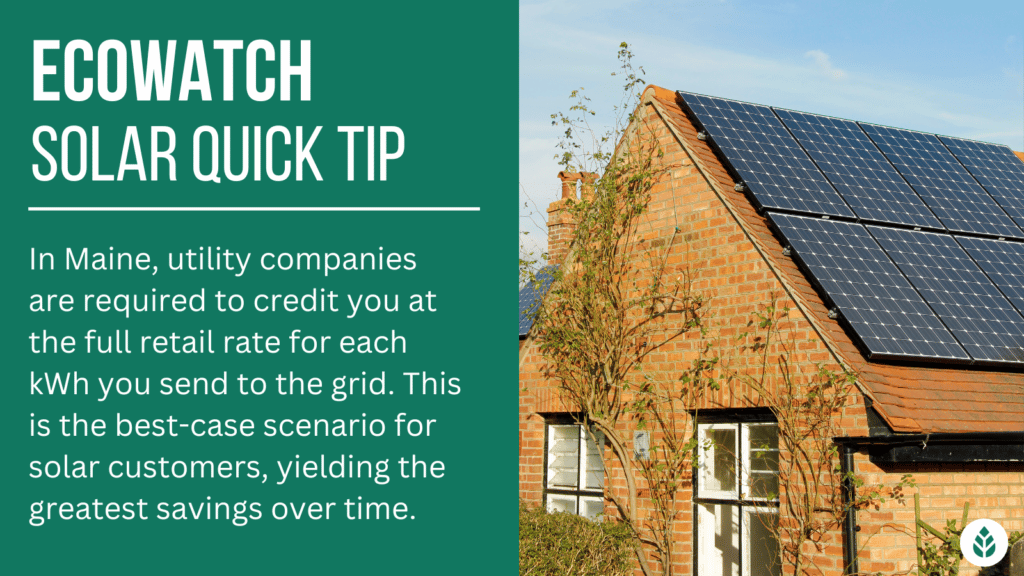
Cost of Living and Property Tax in Maine
When considering a move to Maine, it’s important to understand the cost of living and property taxes in the state.
Cost of Living
Maine’s cost of living is around the national average. While specific costs may vary depending on the location within the state, overall, Maine offers a relatively affordable living environment. Housing costs, including rent and homeownership, are generally lower compared to other states in the region. However, it’s worth noting that certain areas, especially popular coastal destinations and major cities like Portland, may have a higher cost of living due to increased demand and limited housing supply.
Property Tax
Maine’s property tax is generally in line with the national average. Property taxes are assessed based on the value of the property and vary depending on the municipality. It’s important to research the property tax rates in the specific area you plan to live in to understand the potential costs. It’s also worth noting that Maine offers property tax exemptions and relief programs for eligible individuals, such as seniors and veterans, which can help reduce the property tax burden.
Safety and Employment in Maine
When considering a new place to live, safety and employment opportunities are important factors to consider. Thankfully, Maine has positive statistics in both areas.
Low Crime Rate
Maine boasts a low crime rate, making it a safe place to live and raise a family. The state consistently ranks among the safest states in the country, with low rates of violent and property crimes. The tight-knit communities, strong community involvement, and law enforcement efforts contribute to maintaining a secure environment for residents.
Unemployment Rate
Maine’s unemployment rate is relatively low compared to the national average. The state’s diverse economy encompasses various industries, including healthcare, education, manufacturing, tourism, and technology. These sectors provide a range of employment opportunities for both skilled and unskilled workers. Additionally, Maine’s strong work ethic, skilled workforce, and supportive business environment contribute to a healthy job market.
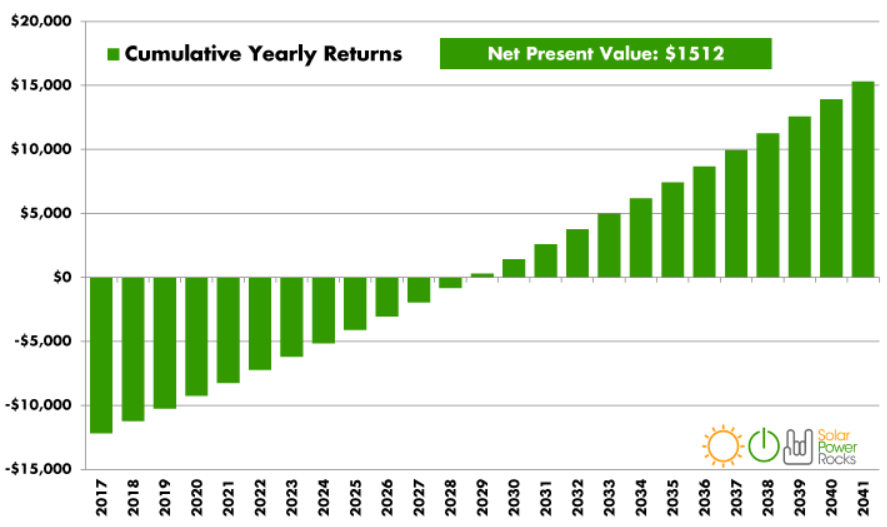
Natural Disasters in Maine
While Maine offers a high quality of life and natural beauty, it is not immune to natural disasters. It is important to be aware of potential hazards and take necessary precautions.
Floods
Maine experiences occasional floods, primarily due to heavy rainfall and snowmelt. Flooding can lead to property damage, road closures, and disruptions to daily life. Staying informed about flood risks, having emergency plans in place, and taking measures to protect your property can help mitigate the potential impact of floods.
Earthquakes
Although not as common as other areas on the West Coast, Maine does experience occasional earthquakes. These seismic events are often mild and rarely cause significant damage. Nonetheless, it is essential to be prepared by securing heavy furniture and objects and having emergency supplies readily available.
Hurricanes
While not as frequent as in coastal southern states, Maine can be affected by hurricanes and tropical storms. These weather events can bring strong winds, heavy rainfall, and storm surges, resulting in property damage and power outages. Staying updated on weather forecasts, having a disaster preparedness plan, and following any evacuation orders are crucial during hurricane events.
Landslides
Maine’s hilly and mountainous terrain can occasionally experience landslides, especially during periods of heavy rainfall or rapid snowmelt. Being aware of potential landslide-prone areas and taking appropriate precautions, such as avoiding unstable slopes, can help reduce the risk of landslides.
Winter Storms
Maine is no stranger to winter storms, with heavy snowfall, freezing temperatures, and strong winds being common during the winter months. Snowstorms can lead to road closures, power outages, and dangerous travel conditions. Being prepared with adequate winter supplies, such as blankets, food, and emergency heating sources, is important for residents living off-grid.
In conclusion, Maine offers incentives and rebates for renewable energy, making it an attractive destination for those seeking to live off-grid. However, the state poses unique challenges, such as cold winters and limited crop options, that should be considered. Maine’s cities, including Portland, Lewiston, Bangor, South Portland, Auburn, and Biddeford, offer a diverse range of experiences and amenities. The state’s untouched nature, wildlife diversity, and fresh water resources provide ample opportunities for outdoor enthusiasts. The cost of living and property tax in Maine is around the national average, with a low crime rate and a relatively low unemployment rate. While Maine experiences natural disasters, including floods, earthquakes, hurricanes, landslides, and winter storms, being prepared and taking necessary precautions can help mitigate the impact of these events. Whether you’re considering off-grid living or simply looking for a new place to call home, Maine has much to offer.

